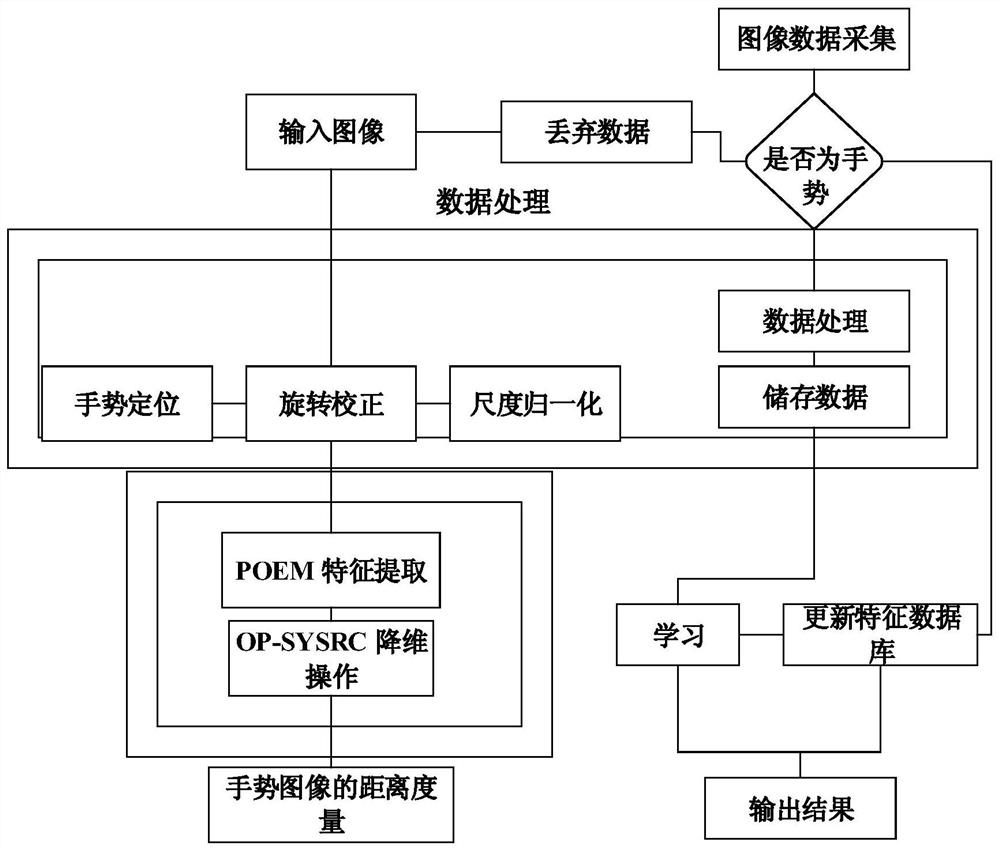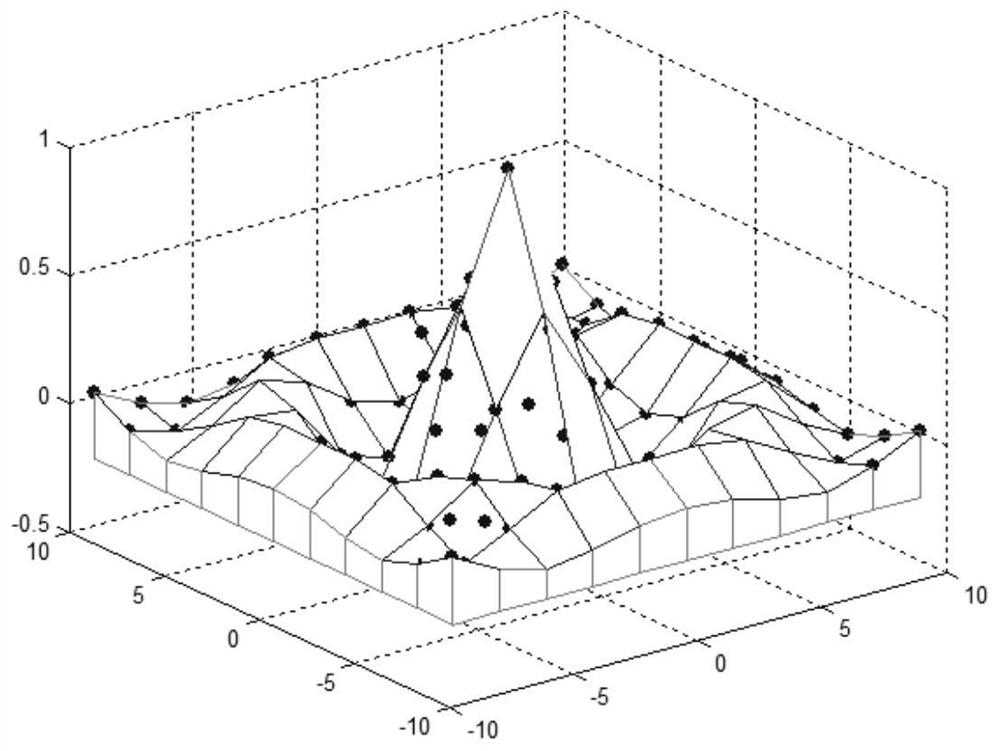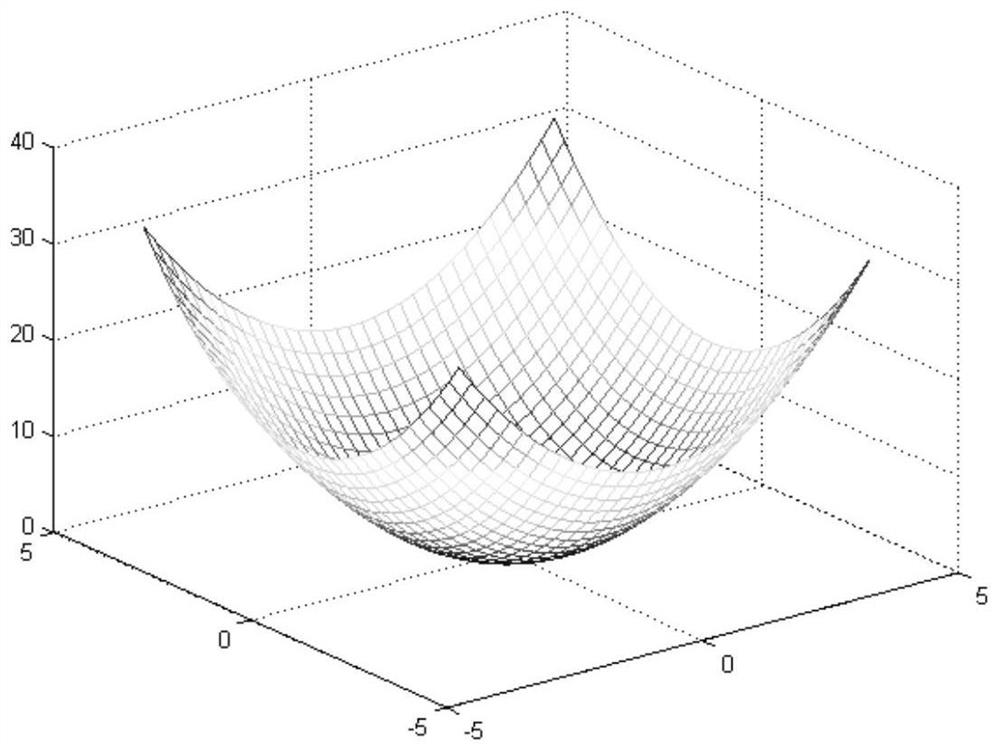A Gesture Recognition Method Based on Optimal Projective Symmetry Approximate Sparse Classification
A technology of gesture recognition and sparse classification, which is applied in the field of OP-SYSRC robust gesture recognition algorithm based on big data, can solve the problems of low recognition rate and poor real-time performance of gesture recognition, and achieve improved classification effect, fast and accurate gesture recognition, stability, Effects that improve recognition and contrast performance
- Summary
- Abstract
- Description
- Claims
- Application Information
AI Technical Summary
Problems solved by technology
Method used
Image
Examples
Embodiment Construction
[0041] The present invention proposes an OP-SYSRC robust gesture recognition algorithm based on big data, which mainly consists of three parts: technical features of gesture recognition, construction of OP-SYSRC algorithm, and model training / testing.
[0042] The method specifically includes steps as follows:
[0043] 1. Feature extraction for gesture recognition:
[0044] After collecting a lot of gesture image data, first of all, the gesture image needs to be normalized and corrected, which is an important part of gesture recognition. Its purpose is mainly to remove distracting information such as complex backgrounds in gesture images. The result of normalization correction directly affects the effect of subsequent feature extraction and classification recognition. This allows each image to contain only the characteristic regions of the gesture.
[0045] After the normalized gesture image is obtained, the POEM features of the image are extracted, and feature size reductio...
PUM
 Login to View More
Login to View More Abstract
Description
Claims
Application Information
 Login to View More
Login to View More - R&D Engineer
- R&D Manager
- IP Professional
- Industry Leading Data Capabilities
- Powerful AI technology
- Patent DNA Extraction
Browse by: Latest US Patents, China's latest patents, Technical Efficacy Thesaurus, Application Domain, Technology Topic, Popular Technical Reports.
© 2024 PatSnap. All rights reserved.Legal|Privacy policy|Modern Slavery Act Transparency Statement|Sitemap|About US| Contact US: help@patsnap.com










